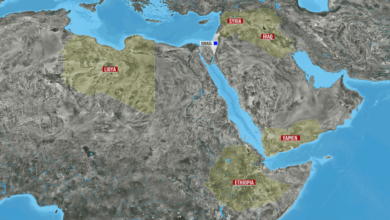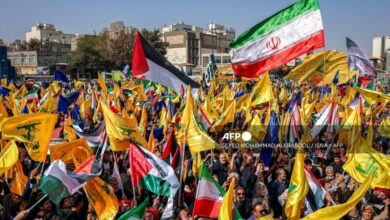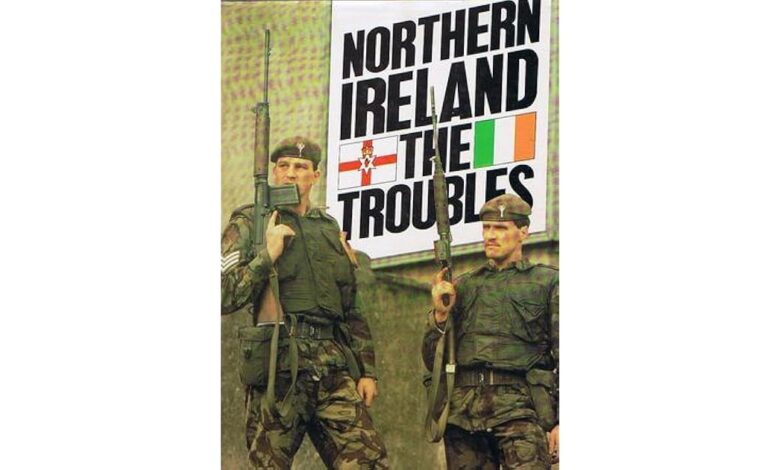
Northern Ireland Troubles Immunity A Complex Legacy
With Northern Ireland Troubles immunity as our focus, we delve into the complex and often painful legacy of conflict. This exploration examines the historical context, legal frameworks, and individual trauma surrounding the Troubles. We’ll unpack the different interpretations of immunity, the tension between accountability and forgiveness, and the lasting implications for contemporary Northern Ireland.
This journey through the history and present of Northern Ireland illuminates the intricacies of immunity within the context of the Troubles. We examine the legal and political dimensions of this concept, considering the role of historical memory, reconciliation, and the pursuit of justice. The story is multifaceted and deeply moving, demanding careful consideration of the past to understand the present.
Historical Context of Northern Ireland Troubles: Northern Ireland Troubles Immunity
The Northern Ireland Troubles, a period of intense conflict spanning decades, deeply scarred the region and its people. Understanding the roots of this conflict requires delving into the complex interplay of historical, political, and religious factors that shaped the region’s identity and fueled decades of violence. The legacy of these events continues to resonate today, impacting political discourse and social relations.The Troubles, a complex and multifaceted conflict, were rooted in a historical struggle for control of Northern Ireland.
The region’s unique position within the United Kingdom, coupled with its predominantly Protestant population and Catholic minority, created a fertile ground for tension. This tension was further exacerbated by political maneuvering, economic disparities, and religious differences. The struggle over political representation and the very nature of Northern Ireland’s place within the United Kingdom created a volatile situation, setting the stage for decades of violence.
Key Political Factors
The political landscape of Northern Ireland was characterized by deep-seated divisions between unionists, who sought to remain part of the United Kingdom, and nationalists, who advocated for a united Ireland. These competing aspirations, coupled with differing views on governance and political representation, contributed significantly to the conflict. The absence of a truly inclusive political system that addressed the needs of all communities exacerbated the situation.
Key political figures, such as Ian Paisley and Gerry Adams, played prominent roles in shaping the political discourse and mobilizing their respective communities.
Social and Religious Factors
The Troubles were profoundly influenced by deep-seated social and religious divisions. Religious identity often became intertwined with political allegiance, further intensifying the conflict. Sectarian violence, fueled by historical grievances and social prejudice, became a hallmark of the Troubles. Economic disparities between different communities also contributed to the unrest, with nationalists often experiencing greater economic hardship.
Motivations of Different Factions
Unionists, predominantly Protestant, sought to maintain Northern Ireland’s place within the United Kingdom. Their motivations stemmed from a desire to preserve their cultural and religious identity, and to safeguard their perceived interests in a predominantly Protestant-majority region. Nationalists, largely Catholic, aimed for a united Ireland, viewing Northern Ireland as an integral part of the Republic of Ireland. Their motivations stemmed from a desire for self-determination, equality, and a more inclusive society.
Key Figures and Groups
Numerous individuals and groups played crucial roles in the Troubles. The Provisional Irish Republican Army (IRA) and the Ulster Volunteer Force (UVF) were paramilitary groups involved in acts of violence. Prominent figures like Bobby Sands and Martin McGuinness embodied the aspirations and struggles of their respective communities. These groups, driven by their respective political and religious beliefs, employed various tactics in their pursuit of their goals.
Timeline of Key Events
| Date | Location | Description |
|---|---|---|
| 1968 | Various locations in Northern Ireland | Civil rights marches and protests began, escalating tensions between unionists and nationalists. |
| 1969 | Belfast | Rioting and violence broke out, marking the start of widespread unrest. |
| 1972 | Bloody Sunday | British Army soldiers shot and killed 13 unarmed civilians during a civil rights march. |
| 1981 | Macey’s pub, Belfast | Bobby Sands, a republican hunger striker, died during his protest. |
| 1998 | Belfast | The Good Friday Agreement was signed, marking a turning point in the conflict. |
Legal and Political Frameworks
The Northern Ireland Troubles, a period of intense conflict, necessitated the establishment of numerous legal and political frameworks to address the violence and its aftermath. These frameworks evolved over time, reflecting changing political landscapes and societal needs. Understanding these frameworks is crucial to comprehending the complex history and ongoing challenges of Northern Ireland.International actors played a significant role in mediating the conflict, and their involvement often influenced the development and implementation of these legal and political measures.
These interventions aimed to foster a peaceful resolution and encourage cooperation between the various factions involved. Key legislation and policies, enacted in response to the Troubles, were designed to promote reconciliation, justice, and security.
Legal Frameworks Addressing the Troubles
Various legal frameworks were implemented to address the Troubles, reflecting the need for justice, accountability, and reconciliation. These frameworks aimed to address the legacy of the past while fostering a peaceful future. These legislative responses sought to address issues such as the historical injustices, the need for accountability for past violence, and the creation of a just and equitable society for all citizens.
- The Good Friday Agreement (1998) marked a pivotal moment, establishing a power-sharing agreement between the unionist and nationalist communities. This agreement, underpinned by international support, laid the foundation for a more peaceful future. The agreement provided a framework for devolved government, and it aimed to address the underlying political issues that fuelled the conflict.
- The establishment of the Northern Ireland Assembly and Executive created a structure for political dialogue and cooperation. The agreement facilitated the sharing of power and responsibilities between the unionist and nationalist communities. The establishment of this body aimed to foster a sense of shared governance and responsibility.
Political Frameworks and International Involvement
The political landscape of Northern Ireland has been profoundly shaped by the involvement of international actors. Their engagement has ranged from mediating negotiations to offering financial support. The involvement of international actors played a crucial role in facilitating the peace process.
- The role of the British and Irish governments was central to the peace process. Their joint efforts were instrumental in fostering dialogue and reaching compromises that addressed the concerns of both unionist and nationalist communities. Their joint efforts focused on finding common ground to address the issues.
- The European Union (EU) also played a significant role in the peace process. Their involvement extended to providing financial support and encouraging cooperation among the various parties. The EU aimed to facilitate economic growth and development in Northern Ireland.
- The role of the United States government was significant in supporting the peace process. Their involvement included providing diplomatic and financial assistance. Their efforts focused on promoting a peaceful resolution to the conflict and fostering reconciliation between the communities.
Key Legislation and Policies
A number of key pieces of legislation and policies were enacted in response to the Troubles. These measures addressed the issues of justice, accountability, and reconciliation.
| Legislation | Provisions | Impact |
|---|---|---|
| The Historical Enquiries Team (HET) Act | Established the HET to investigate past abuses, and aimed to foster truth and reconciliation. | Led to the uncovering of significant information about past atrocities and helped to address the legacy of the Troubles. |
| The 2010 Northern Ireland Act | Amended the Northern Ireland Act to address political and governance issues. | Improved the functioning of the Northern Ireland Assembly and Executive. |
| The Northern Ireland (Sentencing) Act | Provided specific sentencing guidelines for certain offences, with an aim to increase accountability for criminal acts. | Provided a framework for sentencing decisions in the context of the Troubles, ensuring appropriate responses to criminal acts. |
Comparison of Conflict Resolution Approaches
Various approaches to conflict resolution were employed during the Troubles. These approaches varied in their effectiveness and reflected the complexity of the situation. The different approaches attempted to address the different aspects of the conflict.
- The Good Friday Agreement represented a negotiated settlement. The agreement aimed to address the underlying political and social issues that contributed to the conflict. The negotiation involved various parties and addressed the needs of the various communities involved.
- The use of international mediation aimed to facilitate dialogue and build trust between the warring factions. International mediation provided a neutral platform for dialogue. Mediation aimed to foster a sense of shared responsibility.
Evolution of Frameworks Over Time
The legal and political frameworks addressing the Troubles have evolved significantly over time. This evolution reflects the changing dynamics of the conflict and the broader political landscape. The evolving frameworks responded to the changing political needs and context of Northern Ireland.
Individual and Collective Trauma
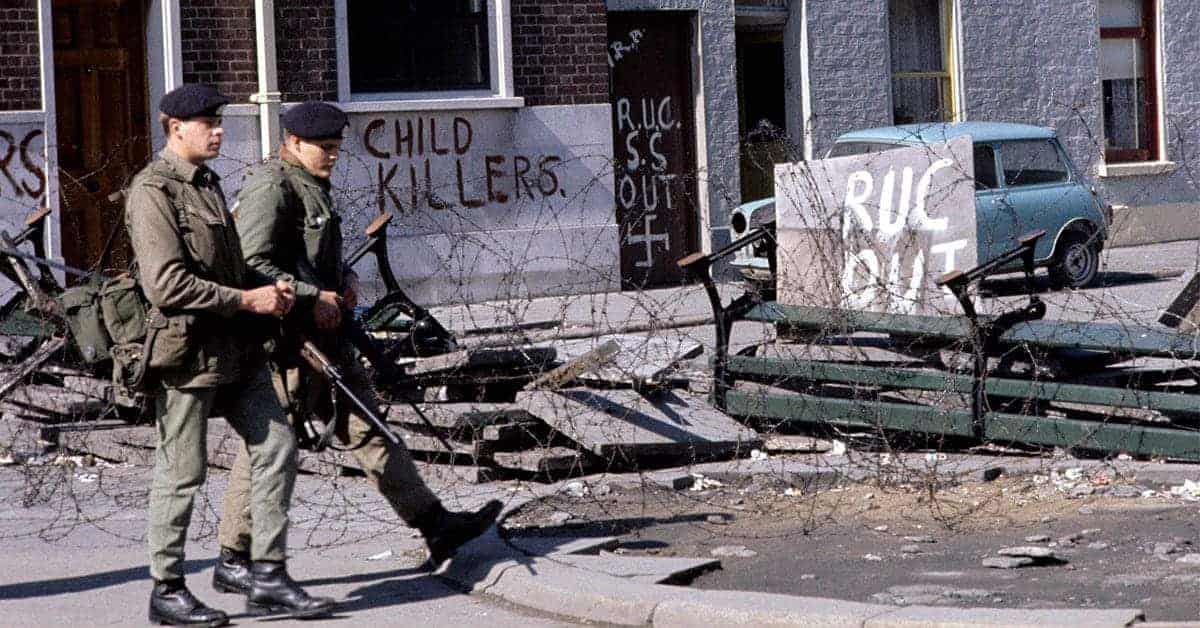
The Northern Ireland Troubles left an indelible mark on the psyche of the region, creating deep-seated trauma both for individuals and the communities as a whole. This trauma, often intertwined with political and historical factors, has manifested in a range of psychological and social issues, continuing to impact the region’s well-being. Understanding the complexities of this collective trauma is crucial for fostering reconciliation and healing.The conflict fostered a climate of fear, violence, and uncertainty that deeply affected the emotional and psychological health of individuals and families.
The constant threat of violence, displacement, and loss led to widespread anxiety, depression, and post-traumatic stress disorder (PTSD). Furthermore, the division and mistrust between communities compounded the psychological burden, perpetuating cycles of suffering and hindering efforts at healing and reconciliation.
Collective Trauma in Northern Ireland
The Troubles were not just a series of isolated events; they were a shared experience that shaped the collective consciousness of Northern Irish communities. This shared experience created a sense of collective trauma, where the community’s collective memory and identity were deeply affected by the conflict. The trauma wasn’t merely individual; it resonated through generations, impacting the social fabric and interpersonal relationships within communities.
This collective trauma manifests in various ways, including mistrust between communities, social division, and the erosion of social capital.
The ongoing debate around immunity for those involved in the Northern Ireland Troubles is complex. It’s a deeply personal issue, and often intertwined with the overwhelming grief experienced by families affected. Just like the emotional turmoil surrounding the Troubles, the struggles of grief are beautifully and powerfully explored in the article “Grief is for people sloane crosley” grief is for people sloane crosley , highlighting the universality of loss.
Ultimately, navigating these historical and emotional landscapes requires careful consideration and empathy, just as in the ongoing discussions about immunity.
Psychological Effects on Individuals and Families
The conflict’s impact on individuals and families was profound and multifaceted. Exposure to violence, loss, and displacement created significant psychological distress. Many individuals experienced post-traumatic stress disorder (PTSD), characterized by flashbacks, nightmares, and avoidance behaviours. The emotional toll on families was particularly severe, with children often witnessing or experiencing violence firsthand, leading to long-term psychological scars. Furthermore, the conflict significantly disrupted family structures and social networks, impacting interpersonal relationships and creating feelings of isolation and helplessness.
Thinking about the complexities of immunity surrounding the Northern Ireland Troubles, it’s interesting to draw parallels to recent events like the tragic shooting on the set of “Rust”, involving armorer Alec Baldwin. While the circumstances surrounding the armorer Alec Baldwin rust shooting are vastly different, both situations highlight the fragility of safety protocols and the potential for unforeseen tragedies in seemingly controlled environments.
Ultimately, both cases remind us that even in the midst of political turmoil or film production, accountability and robust safety measures are crucial to preventing future tragedies, echoing the need for long-term immunity from violence in Northern Ireland.
Long-Term Impact on Mental Health and Well-being, Northern ireland troubles immunity
The long-term effects of the Troubles on mental health and well-being are evident in the prevalence of mental health issues in the region. The constant fear, violence, and uncertainty created a lasting legacy of psychological distress. This has resulted in a higher incidence of anxiety, depression, and PTSD, impacting individuals’ ability to function effectively in society. Generational trauma also played a significant role in perpetuating these issues, with children and grandchildren of those affected inheriting the psychological scars of the conflict.
Support Systems and Initiatives
Various support systems and initiatives have been established to address the trauma experienced during the Troubles. These initiatives often involved community-based support groups, psychological counselling, and trauma-informed care. The establishment of dedicated mental health services, tailored to the specific needs of individuals and communities, was critical in providing a safe space for healing and recovery. Examples include trauma-informed counselling programs for victims of violence and community-led support groups designed to foster healing and reconciliation between opposing factions.
Mechanisms for Reconciliation and Healing
Reconciliation efforts have focused on addressing the root causes of the conflict and promoting understanding and empathy between communities. These efforts have involved truth and reconciliation commissions, historical commemorations, and educational initiatives. Dialogue and communication between opposing groups were crucial in fostering trust and rebuilding relationships. Further, mechanisms for restorative justice, providing opportunities for victims and perpetrators to engage in dialogue and address the harm caused, played a significant role in promoting healing and reconciliation.
Comparison of Trauma Support
| Type of Support | Description | Strengths | Weaknesses |
|---|---|---|---|
| Community-Based Support Groups | Groups formed within communities to provide peer support and shared experiences. | Provides a sense of belonging and shared understanding, fosters social support networks. | May not provide professional therapeutic intervention, confidentiality concerns may arise. |
| Psychological Counselling | One-on-one therapy provided by mental health professionals. | Provides individualized attention, allows for exploration of personal trauma, offers professional guidance. | Can be expensive, may not be accessible to all, can raise sensitive issues for individuals. |
| Trauma-Informed Care | Care that acknowledges and addresses the impact of trauma on individuals and communities. | Promotes holistic approach, reduces retraumatization, fosters resilience. | Requires significant training and resources, implementation may be challenging in complex settings. |
Concepts of Immunity in the Context of the Troubles
The Northern Ireland Troubles, a period of intense political and sectarian violence, left a complex legacy of unresolved grievances and competing claims. Understanding the concept of immunity within this context is crucial, as it reveals the enduring struggles for justice, accountability, and reconciliation. Interpretations of immunity have varied, reflecting the diverse experiences and perspectives of those affected by the conflict.The concept of immunity, whether legal, political, or social, has been a contentious issue throughout the Troubles.
Different groups and individuals have sought or been granted varying forms of immunity, often based on their perceived role in the conflict or their political affiliations. These interpretations have been deeply intertwined with the struggle for historical memory and reconciliation, shaping the ongoing efforts to address the past and build a more peaceful future.
Different Interpretations of Immunity
The Troubles witnessed various interpretations of immunity. Some sought legal immunity, often through political processes or agreements, while others interpreted immunity as a form of societal protection or acceptance of their actions. These interpretations were not always mutually exclusive, and the overlapping nature of legal, political, and social immunity created a complex and multifaceted challenge to understanding the conflict.
The different interpretations highlight the deep-seated divisions and the absence of a unified narrative about the conflict.
Legal and Political Dimensions of Immunity
Legal frameworks surrounding immunity in Northern Ireland have evolved over time. Early legal structures often failed to adequately address the complexities of the Troubles, leading to various legal interpretations of the actions of individuals and groups. Later legal and political frameworks, such as the Good Friday Agreement, aimed to address these issues by creating structures for truth, reconciliation, and accountability.
However, the implementation and effectiveness of these frameworks have been contested, highlighting the ongoing challenges in achieving justice and closure.
Historical Memory and Reconciliation in Understanding Immunity
Historical memory plays a significant role in understanding immunity in the context of the Troubles. Different groups hold differing interpretations of the past, leading to differing views on the nature and extent of immunity that should be granted or denied. Reconciliation efforts aim to address these contrasting perspectives and promote a shared understanding of the past, thereby mitigating the potential for future conflict.
However, the legacy of the Troubles continues to shape the present, impacting the ongoing process of reconciliation and the interpretation of immunity.
Social and Political Aspects of Immunity
The concept of immunity in the Troubles extended beyond the legal and political spheres. Social and political interpretations often centered on perceived acceptance or denial of actions, regardless of formal legal processes. These interpretations have influenced public perceptions of individuals and groups, shaping the ongoing dialogue about justice, accountability, and reconciliation. Social and political perceptions of immunity often mirrored the deep-seated divisions within Northern Irish society.
Examples of Individuals and Groups Seeking or Receiving Immunity
Several individuals and groups sought or received immunity during the Troubles. These cases, often involving political actors or paramilitary groups, highlight the complex interplay between legal, political, and social interpretations of immunity. Examples included various individuals and groups involved in paramilitary activities, who sought or were granted some form of immunity through political negotiations or other processes.
Table Demonstrating Types of Immunity
| Type of Immunity | Claimed | Granted | Denied |
|---|---|---|---|
| Legal Immunity | Paramilitary groups | Political actors through agreements | Victims of violence |
| Political Immunity | Individuals involved in political negotiations | Some paramilitary groups through agreements | Individuals accused of serious crimes |
| Social Immunity | Certain communities | N/A | Individuals perceived as aggressors |
Immunity and Accountability
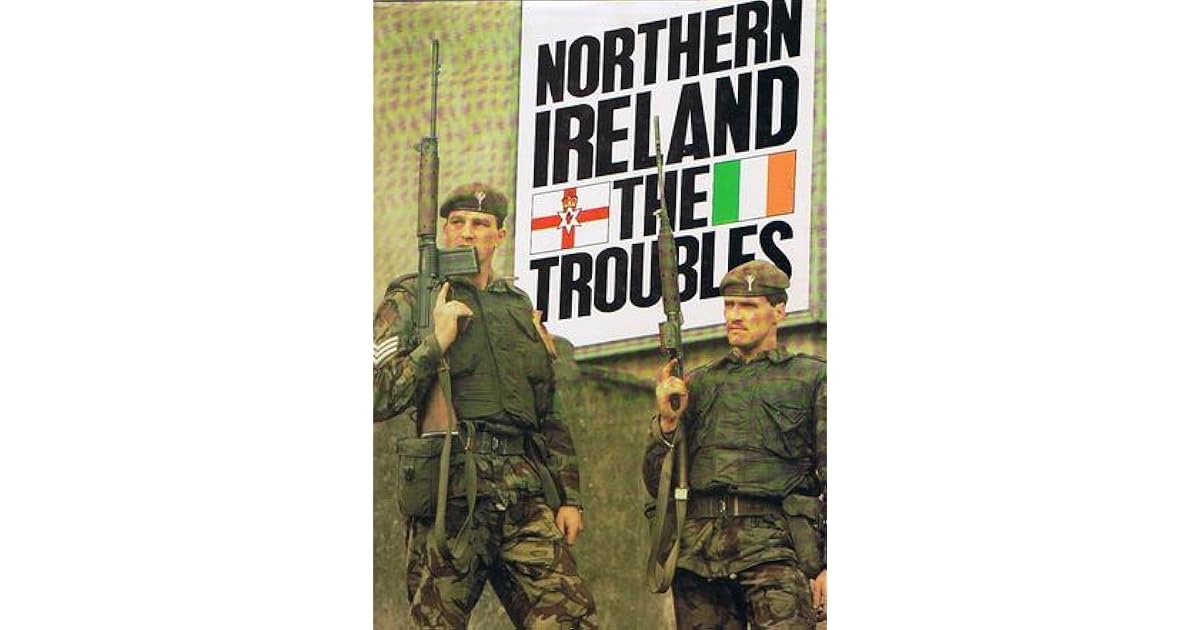
The Northern Ireland Troubles, a period of intense political and sectarian violence, left a legacy of profound trauma and unresolved grievances. A key challenge in addressing this legacy has been the tension between the need for accountability for past abuses and the desire for some form of immunity or amnesty to facilitate reconciliation and move forward. This complex interplay of competing interests has significantly shaped the approach to investigating past crimes and holding perpetrators accountable.The pursuit of accountability in the context of the Troubles is not simply about punishing individuals; it’s also about acknowledging the suffering of victims, establishing truth, and fostering a climate of trust and reconciliation.
This involves understanding the specific processes used to investigate past abuses, and the different roles that truth and reconciliation commissions play in this complex process. It is crucial to recognize the difficulties inherent in balancing these often conflicting goals.
Investigating Past Abuses and Holding Perpetrators Accountable
Mechanisms for investigating past abuses and holding perpetrators accountable have varied. Formal investigations by police forces and independent bodies, often with substantial resources and legal backing, are one approach. These investigations can be thorough and comprehensive, leading to prosecutions and convictions. However, these processes can be lengthy and complex, potentially facing challenges in gathering evidence and securing cooperation from witnesses, many of whom may be reluctant to relive painful experiences.
Other investigative avenues include inquiries or commissions of inquiry, which may not always result in criminal prosecutions, but can provide a vital forum for examining the events that occurred and establishing the truth.
Role of Truth and Reconciliation Commissions
Truth and reconciliation commissions are a distinct approach to addressing past abuses. They typically offer a framework for victims to share their experiences and perpetrators to acknowledge their actions, often with the promise of amnesty in exchange for cooperation and truth-telling. These commissions aim to address the deep-seated grievances that fuel conflict by offering a path towards healing and reconciliation.
However, they often face criticism for potentially undermining the pursuit of justice by offering amnesty to perpetrators in exchange for limited accountability. Successful truth commissions are typically marked by their thoroughness in gathering evidence, impartiality in their investigations, and the provision of appropriate mechanisms for victim participation.
Challenges in Achieving Immunity and Accountability
Balancing immunity and accountability is inherently problematic. The desire for reconciliation often clashes with the need for justice. Victims may feel that granting immunity to perpetrators undermines their right to see justice served, while perpetrators may see immunity as a necessary condition for cooperation in revealing the truth. The lack of full cooperation, incomplete investigations, and the potential for biased investigations can further complicate the situation.
The inherent difficulty of proving guilt beyond a reasonable doubt, especially in cases of historical abuse, adds to the complexities of the task.
Examples of Immunity Granted or Refused
Examples of immunity being granted or refused in the context of the Troubles are highly context-specific and varied. The granting of amnesty or immunity often involves complex political considerations and legal interpretations, and is sometimes seen as a political strategy to bring about reconciliation. Specific cases might be too sensitive to detail, as they relate to individual perpetrators and victims, but the overall principle is that there’s no single answer to whether immunity should be granted or refused.
Summary Table of Accountability Methods
| Method of Accountability | Successes | Limitations |
|---|---|---|
| Formal Investigations | Potential for prosecutions and convictions, thoroughness if well-resourced | Lengthy process, challenges in securing evidence and witness cooperation, potential for incomplete investigations |
| Truth and Reconciliation Commissions | Opportunities for victims to share experiences, potentially fostering reconciliation | May undermine pursuit of justice by offering amnesty, challenges in impartiality, incomplete investigations |
| Other Inquiries | Opportunity for establishing truth, potentially providing valuable insight | May not result in criminal prosecutions, potential for incomplete investigations |
Contemporary Implications
The Northern Ireland Troubles, a period of intense conflict, have left an enduring legacy on the region. Its impact extends far beyond the immediate violence, shaping social interactions, political discourse, and economic prospects for generations to come. Understanding these contemporary implications is crucial to appreciating the ongoing challenges and opportunities in Northern Ireland.The shadow of the past continues to cast a long and complex influence on the present.
The deeply ingrained divisions, the trauma experienced by individuals and communities, and the unresolved issues of accountability all contribute to a landscape where the search for reconciliation and healing is an ongoing process. This ongoing process requires sustained attention and a willingness to address the historical and psychological wounds that continue to fester.
Impact on Social Relations
The Troubles fostered a climate of suspicion and mistrust that continues to affect social relations in Northern Ireland. The legacy of sectarianism, manifested in political allegiances and social interactions, remains a persistent challenge. Community relations, once marked by profound division, still struggle to overcome the historical grievances and the lasting psychological scars. Reconciliation efforts, while making progress, face an uphill battle due to deeply ingrained beliefs and historical prejudices.
Impact on Political Discourse
Political discourse in Northern Ireland is often shaped by the historical context of the Troubles. Political narratives are frequently framed by the past, with debates on historical responsibility and accountability playing a significant role. This constant referencing of the past can sometimes hinder the development of a forward-looking political agenda. Political parties often find themselves entrenched in their positions, owing to their roots in the historical conflicts.
This can result in an inability to engage in constructive dialogue and cooperation on contemporary issues.
The immunity surrounding the Northern Ireland Troubles often overshadows the complexities of historical conflict. While the recent Biden-brokered cease-fire in the Israeli-Palestinian conflict, biden israel hamas cease fire , highlights a different kind of political pressure, the underlying issues of power and reconciliation remain strikingly similar. These parallels suggest a need for more than just temporary agreements in achieving lasting peace in both regions.
Impact on Economic Development
The economic development of Northern Ireland has been significantly affected by the Troubles. The conflict’s impact on investment, tourism, and overall economic activity is evident in the region’s continuing economic disparity compared to other parts of the UK. The lack of social cohesion and trust, coupled with the historical legacies, has hindered economic growth. Many areas have struggled to attract investment and retain businesses due to the lingering effects of the Troubles.
Role of Memory and Commemoration
Memory and commemoration play a significant role in shaping identities and narratives in Northern Ireland. Memorialization of the conflict, while necessary for acknowledging victims and reflecting on the past, can also serve to reinforce existing divisions. Finding a balance between remembering the past and moving forward is a key challenge. This process requires careful consideration of how memorialization and commemoration can promote reconciliation and understanding, rather than perpetuating divisions.
Impact on Northern Ireland’s Relationship with the Rest of the UK
The Troubles have undeniably affected Northern Ireland’s relationship with the rest of the UK. The conflict highlighted the complexities of devolution and the challenges of balancing the needs of the region with the interests of the larger UK framework. The ongoing political tensions and issues of historical legacy can affect the UK’s overall perception of Northern Ireland and its place within the Union.
While the Northern Ireland Troubles immunity debate rages on, it’s interesting to see how the world of professional sports also grapples with its own forms of controversy. For example, Anthony Kim’s return to LIV Golf, detailed in Anthony Kims LIV Golf Return A Detailed Look , highlights the complex interplay of money, image, and professional sport. Ultimately, the parallels between these seemingly disparate fields—professional golf and Northern Ireland’s history—offer intriguing insights into the nature of societal immunity to past traumas.
Summary of Long-Term Consequences
The Troubles’ lasting impact is multifaceted and profound. It has created deep societal divisions, hindered economic development, and continues to influence political discourse. The legacy of trauma, unresolved issues, and competing narratives significantly affect the region’s ability to move forward and achieve lasting reconciliation.
Table of Lasting Impacts
| Sector | Impact |
|---|---|
| Social Relations | Deep-seated mistrust and division, continuing sectarianism, difficulty in overcoming historical grievances |
| Political Discourse | Past-oriented narratives, difficulty in engaging in constructive dialogue, entrenched political positions |
| Economic Development | Lack of investment, reduced tourism, persistent economic disparity compared to other parts of the UK |
| Memory and Commemoration | Reinforcement of divisions, challenge in balancing remembrance with reconciliation |
| Relationship with the UK | Complexities of devolution, ongoing tensions, impact on the UK’s perception of Northern Ireland |
Possible Futures and Paths Forward
The Northern Ireland Troubles, a period of intense conflict, have left a lasting impact on the region. Moving forward, Northern Ireland faces the complex task of addressing the legacy of the past while forging a path toward a more peaceful and prosperous future. Various approaches and initiatives are being considered, each with potential benefits and drawbacks. The key is finding a solution that resonates with the diverse communities and fosters genuine reconciliation.The path forward hinges on a comprehensive approach that acknowledges the pain and trauma experienced by all sides while building a shared future.
This necessitates a commitment to truth, justice, and accountability, as well as a willingness to engage in meaningful dialogue and reconciliation. Ultimately, the success of any future path depends on the active participation and cooperation of all stakeholders.
The complexities of Northern Ireland’s Troubles immunity are fascinating, but honestly, sometimes I feel like the historical baggage weighs heavily on the present. It’s a topic that demands deep consideration, similar to the intense emotional exploration in Taylor Swift’s “Tortured Poets Department” ( Tortured Poets Department Taylor Swift A Deep Dive ). Ultimately, understanding the past is crucial for navigating the future, and that holds true for both the music industry and Northern Ireland’s ongoing reconciliation.
Potential Future Scenarios for Northern Ireland
Northern Ireland’s future is not predetermined. Several scenarios are possible, ranging from continued stability to renewed conflict, depending on the choices made by political leaders and citizens. The degree of reconciliation, the effectiveness of justice mechanisms, and the level of economic investment all play a crucial role in shaping these futures.
Possible Approaches to Address the Legacy of the Troubles
Addressing the legacy of the Troubles requires a multi-faceted approach that encompasses truth-seeking, historical acknowledgment, restorative justice, and economic development. This includes establishing mechanisms for victims to receive redress and recognition, as well as supporting initiatives that promote reconciliation and mutual understanding. These approaches are not mutually exclusive; rather, they should be seen as complementary elements of a broader strategy.
Potential Initiatives for Reconciliation and Peacebuilding
Several initiatives can foster reconciliation and peacebuilding in Northern Ireland. These include community-based projects promoting inter-community dialogue, educational programs that promote understanding of the past, and initiatives that provide opportunities for shared experiences. Supporting the arts, fostering economic growth, and ensuring access to justice are also crucial components of any peacebuilding strategy.
Comparison and Contrast of Proposals for Future Developments
Different proposals for Northern Ireland’s future often prioritize different aspects of the legacy of the Troubles. Some emphasize historical truth-telling, while others focus on restorative justice or economic development. Understanding the strengths and weaknesses of each proposal is crucial to developing a comprehensive and effective strategy. Careful consideration should be given to how different approaches might complement each other, fostering a holistic approach to peacebuilding.
Examples of Successful Peacebuilding Initiatives Elsewhere
The experience of other conflict-affected regions offers valuable insights. The Truth and Reconciliation Commission in South Africa, for example, played a critical role in acknowledging past atrocities and fostering reconciliation. Likewise, the Northern Ireland peace process itself, with its focus on political dialogue and power-sharing, serves as a valuable example of peacebuilding. These experiences underscore the importance of addressing historical grievances, providing justice and redress, and fostering economic opportunities.
Table of Possible Futures and Their Implications
| Possible Future | Associated Implications |
|---|---|
| Continued Stability and Prosperity | Economic growth, improved social relations, and continued political stability. Potential for further development and increased international investment. |
| Renewed Conflict | Increased social tensions, potential for violence, and disruption of economic activity. Loss of international confidence and further isolation. |
| Fragmented Society | Polarization of communities, limited opportunities for reconciliation, and stagnation in economic and social development. Potential for political instability and civil unrest. |
| Reconciliation and Shared Future | Increased cooperation between communities, improved social relations, and economic growth. Stronger international standing and recognition. |
Final Wrap-Up
In conclusion, Northern Ireland Troubles immunity presents a multifaceted challenge, demanding a nuanced understanding of the past and its impact on the present. The complex interplay of legal frameworks, individual trauma, and social reconciliation efforts highlights the ongoing struggle for justice and healing. This discussion underscores the importance of acknowledging the past to build a more just and peaceful future for Northern Ireland.
FAQ Guide
What specific types of immunity were claimed, granted, or denied during the Troubles?
This is a complex question. Various forms of immunity were claimed, often related to specific actions or roles during the Troubles. Some claims focused on political motivations, while others might have centered on protecting individuals deemed essential to the social or political fabric. The process of granting or denying immunity was often highly politicized and controversial, varying significantly depending on the specific circumstances and legal framework in place.
How has the legacy of the Troubles impacted Northern Ireland’s economic development?
The Troubles had a significant and lasting negative impact on Northern Ireland’s economic development. Decades of violence and political instability discouraged investment, hindered economic growth, and created a climate of uncertainty for businesses. The recovery process has been long and arduous, requiring significant investment and policy changes to address the economic scars left by the conflict.
What role have truth and reconciliation commissions played in achieving accountability for past abuses?
Truth and reconciliation commissions (TRC) are mechanisms intended to address past abuses and promote reconciliation. They aim to acknowledge past harms, facilitate dialogue between victims and perpetrators, and help build a path toward healing. While TRCs can play a crucial role, their effectiveness is not universally guaranteed and depends on factors like the specific design of the commission, the political context, and the willingness of all parties to participate in the process.

